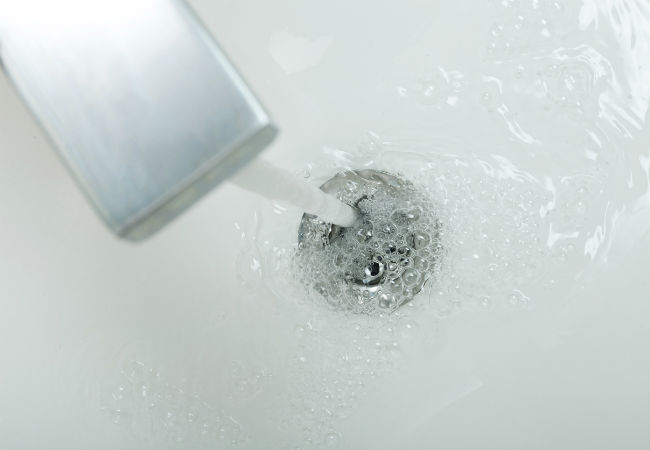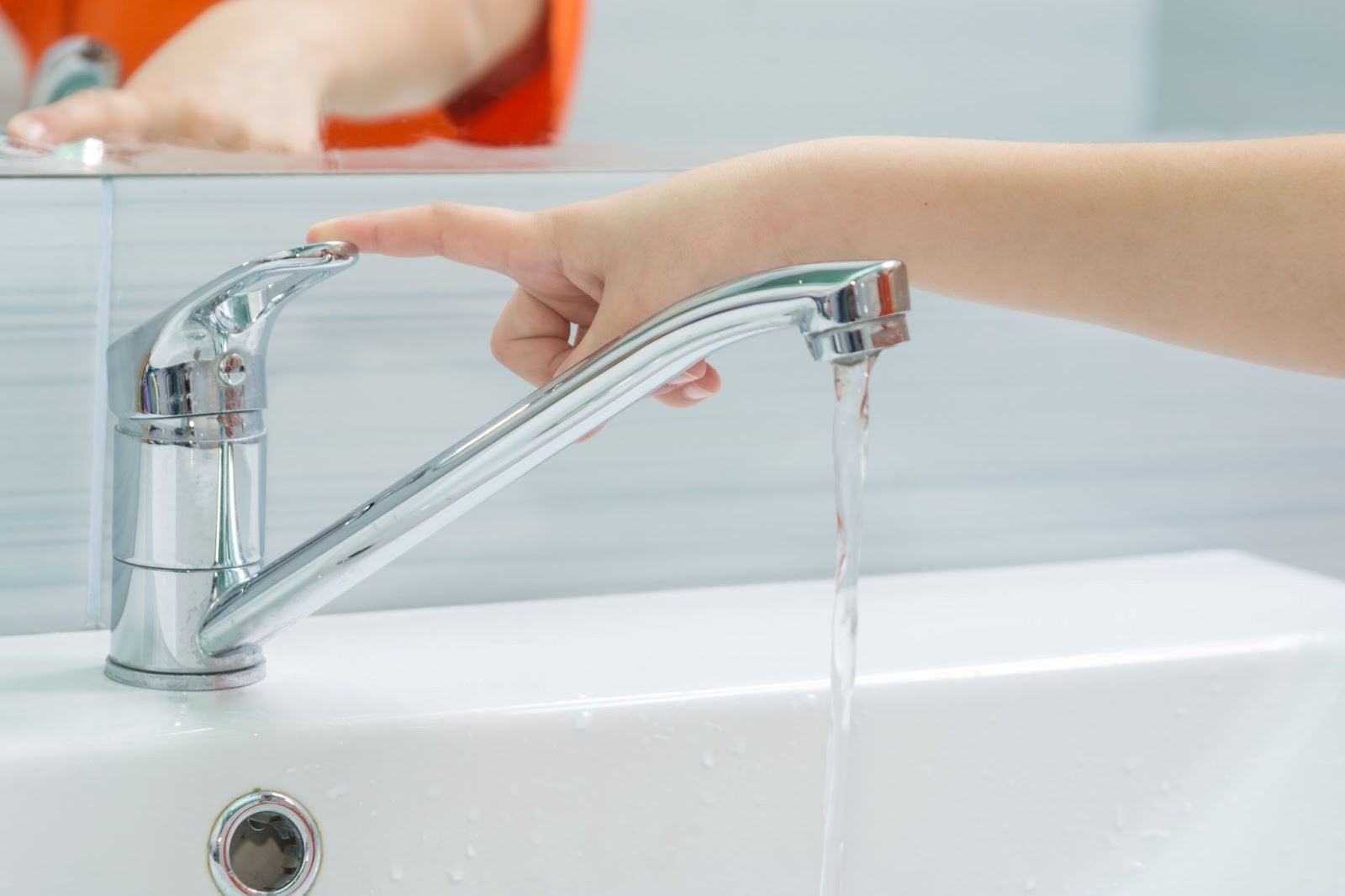Proven Tips For Fixing A Slow-Draining Sink Fast
Proven Tips For Fixing A Slow-Draining Sink Fast
Blog Article
This article further down about Three Common Ways to Fix a Slow Drain is indeed entertaining. Check it out for yourself and decide what you think of it.

Intro
We've all been there: You're brushing your teeth or cleaning your hands, and you observe the water merging in the sink. Rather than rapidly swirling down the tubes, it lingers, transforming your once-refreshing morning routine into a mini swamp scene. A slow-draining sink isn't simply bothersome; it's frequently a sign of bigger pipes concerns lurking below the surface. Fortunately is that the majority of slow-draining sinks can be taken care of with a little expertise, a few standard devices, and some perseverance. All set to tackle this job head-on? Allow's roll up our sleeves and dive right in.
Recognizing the Causes of a Slow-Draining Sink
Before you start poking around in your pipelines, it helps to recognize what could be causing the slowdown. Understanding the source makes it easier to pick the ideal solution.
Devices and Products You'll Need
The right devices make all the distinction. The good news is, you won't need a totally stocked plumbing technician's van to get the job done.
Step-by-Step Guide to Repairing a Slow-Draining Sink
Currently, allow's enter into the nitty-gritty. This step-by-step process will lead you with straightforward methods to restore your sink's water drainage.
Action 1: Get Rid Of and Tidy the Stopper
Commonly, the stopper (that little plug you lower to obstruct water) is the first culprit. Remove it meticulously and wipe any type of hair or substance entraped around its base. Wash it completely before putting it back in place.
Action 2: Use a Bettor to Remove Particles
Got that bettor prepared? Position it over the drainpipe and give it a few company pumps. The concept is to create suction that can loosen up any kind of clog. If you see bits of particles floating up, you get on the appropriate track.
Action 3: Try a Drainpipe Serpent or Cord Wall Mount
If the bettor doesn't suffice, it's time to highlight the drainpipe snake. Delicately feed it right into the drain and spin as you go. You may feel some resistance-- that's most likely the clog. Keep turning and drawing up until you remove the obstruction. If you do not have a drain serpent, an aligned cord hanger can operate in a pinch.
Tip 4: Apply a DIY Drain Cleaner
A natural cleaner made from baking soft drink and vinegar can break down residual gunk. Pour half a cup of cooking soft drink right into the drainpipe, complied with by half a mug of vinegar. Let it fizz for around 15 minutes, then flush with warm water. This chemical reaction commonly does marvels for small blockages.
Tip 5: Reassemble and Examine the Sink
Placed whatever back with each other and run the tap. Does the water now swirl down the drain at a reputable speed? If yes, give on your own a pat on the back. If not, don't anguish-- there are still a few more tricks up your sleeve.
Important Tools for Do It Yourself Repair Works
A bettor is your best starting point. A little, sink-sized bettor develops suction that can dislodge minor obstructions. For even more relentless obstructions, a drain snake (occasionally called a plumber's auger) functions wonders. A set of handwear covers, a flashlight, and perhaps a pair of safety goggles are also useful.
Advised Cleansing Solutions
Light dish soap and warm water can aid break down greasy build-up. A blend of cooking soda and vinegar is a reliable natural remedy, and chemical cleaners provide a more green method. Maintain chemical drainpipe cleaners as a last option, as they can be severe on your pipelines.
Common Perpetrators Behind Slow Water Drainage
So, what's blocking things up? Generally, it's a blend of daily debris-- think hair, soap scum, toothpaste deposit, and remaining food bits. Over time, these little bits gather and cling to the pipeline walls, progressively narrowing the flow and making it harder for water to travel through. Sometimes, natural resource from difficult water can also contribute to the crud, creating the excellent tornado for persistent obstructions.
When is it Time to Take Action?
If you see the water draining pipes slower than common, it's a great idea to interfere sooner rather than later. Waiting as well long can lead to complete clogs, undesirable smells, or even pipe damages. If the water takes more than a couple of secs to remove after turning off the faucet, consider it a warning and prepare to place on your DIY hat.
Safety First: Precautions and Prep work
Prior to you launch into unclogging mode, think about security. You're taking care of possibly dirty water and particles, so slip on a pair of handwear covers. If you're using chemical cleansers, guarantee the area is well-ventilated and adhere to the instructions on the tag.
Protective Gear and Workspace Arrangement
Lay down some old towels or dustcloths around the sink location to catch splashes. Eliminate any type of items that may enter your method, like soap dispensers or toothbrush owners. Ensure you have great lights-- grab a flashlight if needed.
Alternative Methods for Stubborn Clogs
Not all blockages are developed equivalent. If your sink still refuses to coordinate, think about these alternate solutions.
Sodium Bicarbonate and Vinegar Approach
We currently touched on this, however it deserves keeping in mind once again. This mild, environment-friendly method is more secure than chemical cleaners and frequently fairly reliable.
Enzymatic Drain Cleansers
Enzyme-based cleansers use all-natural microorganisms to digest organic matter. They're an excellent choice if you're aiming to avoid harsh chemicals. Just remember, they might take a bit longer to work their magic.
Chemical Drainpipe Cleaners: Advantages And Disadvantages
Chemical cleansers can blast with hard blockages fast, but they're not without drawbacks. They can create heat and fumes, damages pipelines if utilized excessively, and pose ecological dangers. Use them moderately, and always follow the instructions very carefully.
Safety Nets to Maintain Your Sink Flowing
Prevention is the most effective remedy. By adopting a few simple behaviors, you can keep your sink from decreasing to begin with.
Regular Cleaning Up Practices
Clean down the sink container and component area consistently. Eliminate hair or food bits before they have an opportunity to wash down the drain.
Preventing Unsafe Substances Away
Reconsider before disposing coffee premises, oil, or coarse veggie scraps down the sink. These wrongdoers hold on to pipe walls, producing blockages over time.
Regular Maintenance Checks
Arrange a quick month-to-month evaluation. Run warm water with the sink for a couple of minutes, taking notice of the flow. If it seems slow, act fast before it ends up being a full-blown blockage.
When to Call a Professional Plumbing Professional
Occasionally, no matter how tough you attempt, that clog simply won't move. That's when it's time to generate the pros.
Signs That Indicate an Extra Major Problem
If your sink drains gradually in spite of multiple efforts, or if you observe water backing up in various other fixtures (like your shower or bathroom), you might have an extra significant plumbing issue prowling much deeper in the system.
Balancing Do It Yourself Initiatives with Expert Aid
While DIY can save you money and use a sense of success, there's no pity in calling a professional. A specialist plumber can evaluate your whole pipes arrangement, making certain there's no underlying damages or long-lasting trouble that might cost you more later on.
Comparing Prices and Long-Term Solutions
Before deciding, consider the big picture. A cheap, quick fix might fix the problem temporarily, however purchasing a much more permanent remedy might conserve you cash and anxiety over time.
Weighing the Expenses of DIY vs. Specialist Fixes
Do it yourself solutions typically cost little more than the rate of a bettor or a bottle of baking soda. Specialist solutions, on the other hand, come with a cost yet may stop repetitive problems and expensive repair work later.
Purchasing Quality Fixtures and Upgrades
If your sink's style contributes to frequent clogs, it could be worth updating to higher-quality fixtures or changing the pipes format. Consider this an investment in your home's functionality and comfort.
Final thought
A slow-draining sink can feel like a small irritation, however it's typically an indicator that your plumbing needs a little tender loving care. By comprehending the origin, utilizing the right tools and strategies, and dedicating to basic safety nets, you can keep your sink moving openly. And when all else fails, never think twice to contact a specialist-- your home's plumbing is worth the investment in care and upkeep.
Three Common Ways to Fix a Slow Drain
Baking Soda Method
Boil a full pot of water. Measure out cup of baking soda and pour it down the drain. Then take cup of the magical cleansing substance known as white vinegar and drop that down there too. Allow the mixture to fizz in the drain for five minutes as the vinegar and baking soda combine. Now dump in that whole pot of boiling water. This combination of cleaning substances should clear out anything that is causing your sink to drain slowly. If it doesn t...
Zip-It
If the baking soda method doesn t clear out your drain, it may be because a significant amount of hair and/or other debris has collected there and you need to remove it. Purchase a Zip-It tool at any home improvement or hardware store and insert it into your drain. It will catch any collected hair or debris that s blocking the flow of water. Pull it out. If it s got a big clump of hair, etc. on the end, you ve probably got your culprit.
Drain Cleaner
If these methods don t work, there is the standard drain cleaner that you can also buy in a hardware store or even your local grocery store. It s better if you can use a household solution, but these drain cleaners often work in a pinch. They re very simple to use. You generally just dump them in your drain and wait. If even this method is not effective, it may be time to call the plumber.
https://www.mrrooter.com/oneida/about-us/blog/2017/july/three-common-ways-to-fix-a-slow-drain/

I discovered that article on Solved! How to Fix a Slow Sink Drain while doing a search on the internet. Those who enjoyed reading our blog post plz don't forget to pass it around. Thanks a lot for your time. Please visit our website back soon.
Click Here Report this page